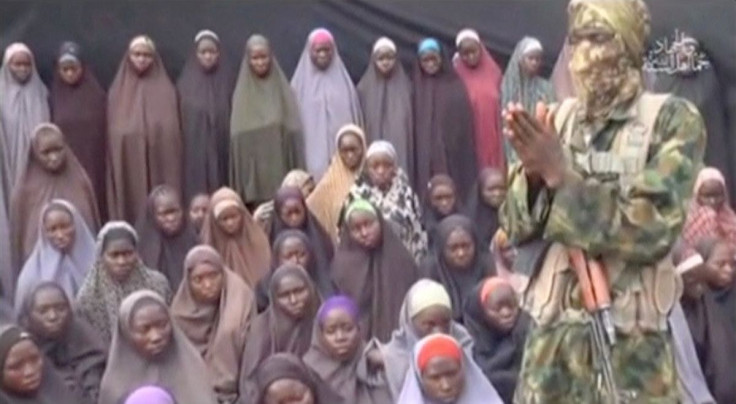Nigeria Chibok Kidnapping Update: After Boko Haram Video, Parents Demand Buhari Negotiate To 'Bring Back Our Girls'

The parents of hundreds of Nigerian schoolgirls who were kidnapped in 2014 by Boko Haram Islamist extremist militants are demanding that President Muhammadu Buhari act swiftly after the terror group released video over the weekend announcing some of the students had died from a series of airstrikes. During a meeting Sunday night held by a group called BringBackOurGirls, some in attendance called on the government to intervene immediately, local news outlet NAIJ reported.
"We are not going to let up until this government acts," said Oby Ezekwesili. "Let them get ready because every day we shall be marching to the (Presidential) villa."
The situation calls for last-ditch efforts, he continued. "Only three choices are available – negotiate to release our girls, use the military operation or a combination of the two," Ezekwesili said.
#BokoHaram terror Group releases new vid of #Chibokgirls in Nigeria Claims many killed by Air strikes pic.twitter.com/vQqHl6bf1a @OnlineMagazin
— ARnews 1936 (@ARnews1936) August 15, 2016
His and other parents' similar reactions were prompted after Boko Haram released a video over the weekend claiming that while the group still had the schoolgirls, some of them had been killed from airstrikes meant for its militants.
One of the schoolgirls pleads in the video for the Nigerian government to release members of Boko Haram in exchange for the kidnapped students from a school in Chibok, which is located in the northeastern portion of the West African country.
The father of the schoolgirl who appeared in the video told CNN that it was his daughter on film and was hopeful to learn she and some of her fellow students were still alive.
"We are being extremely careful because the situation has been compounded by the split in the leadership of Boko Haram," Alhaji Lai Mohammed, Nigeria's Minister of Information of Culture, said in an online statement.
The two-year mark since the kidnapping was in April, when the country director of Amnesty International Nigeria lamented over what seemed like a lack of progress in bringing the girls home safely.
"Few of us can begin to comprehend the suffering of parents who have not seen their daughters for two years,” M.K. Ibrahim said at the time. "In addition to the Chibok schoolgirls, today we also remember all those abducted, killed and displaced. Two years on, the Chibok girls have come to symbolize all the civilians whose lives have been devastated by Boko Haram."
© Copyright IBTimes 2024. All rights reserved.






















